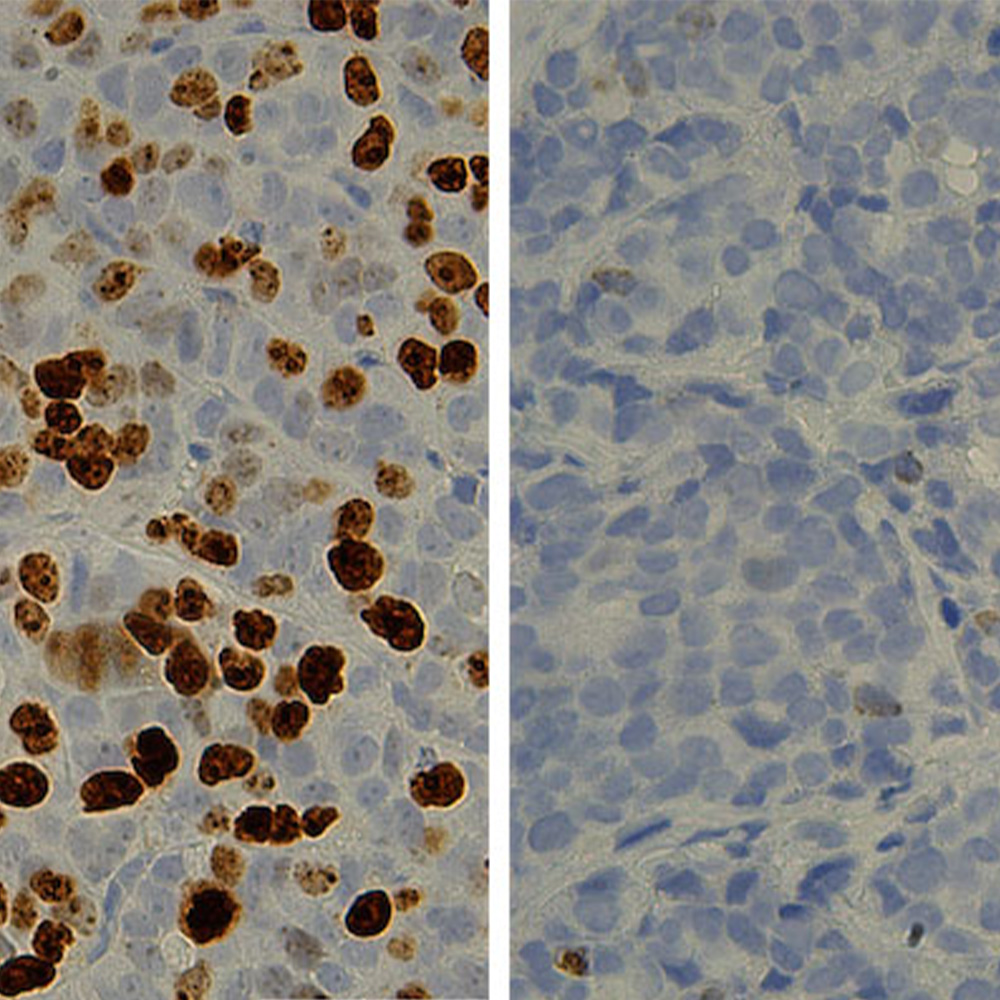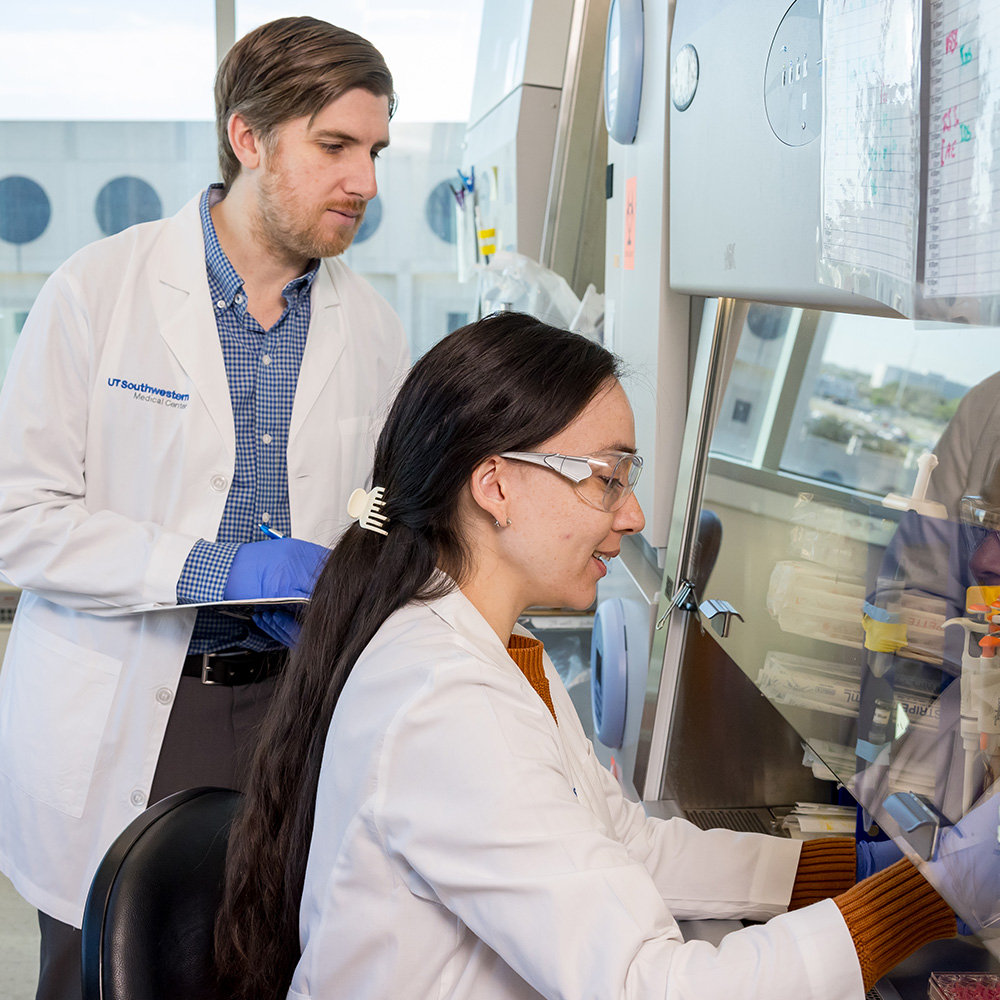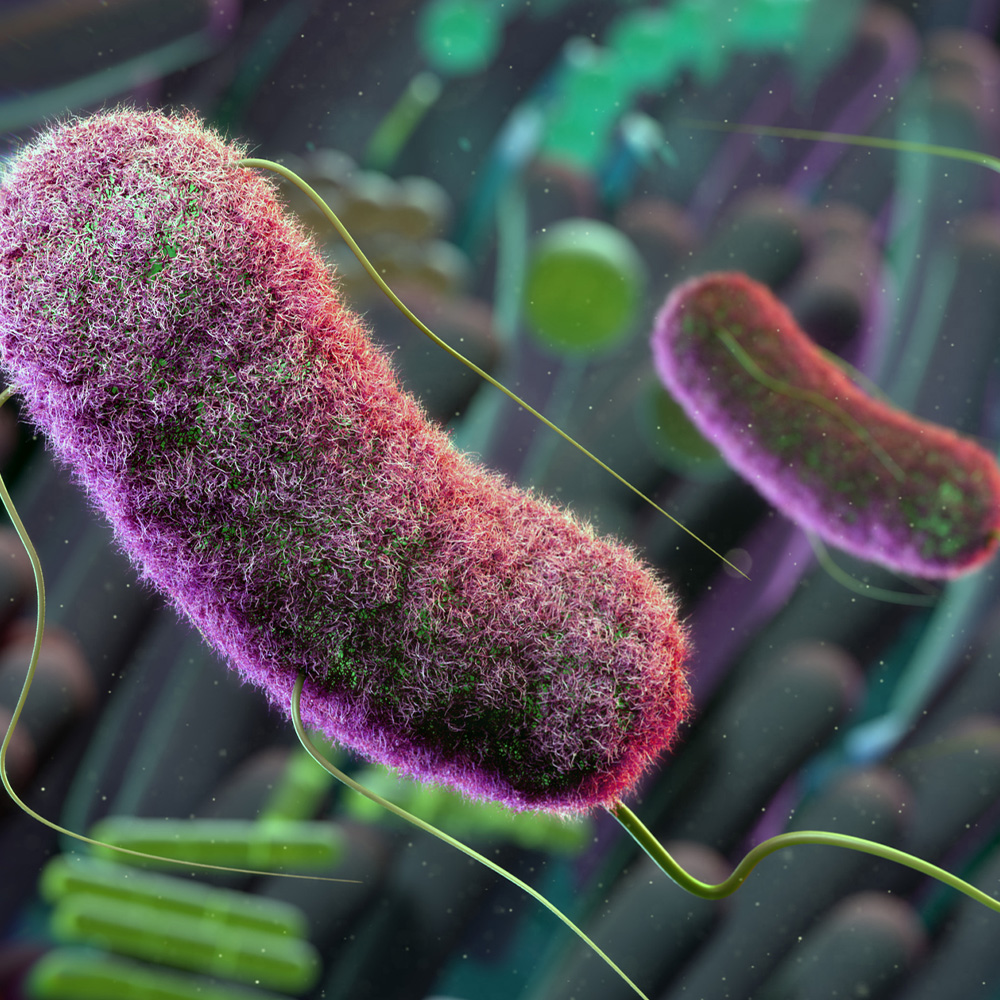Scientists synthesize nanoparticles that can deliver tumor suppressors to damaged livers

DALLAS – Jan. 25, 2016 – UT Southwestern Medical Center chemists have successfully used synthetic nanoparticles to deliver tumor-suppressing therapies to diseased livers with cancer, an important hurdle scientists have been struggling to conquer.
Late-stage liver cancer is a major challenge for therapeutic intervention. Drugs that show promise in healthy functioning livers can cause devastating toxicity in cirrhotic livers with cancer, the researchers explained.
UT Southwestern scientists crafted synthetic “dendrimer” nanoparticles that are able to provide the tumor-suppressing effect without further damaging the liver or neighboring tissue. The findings appear in the journal, Proceedings of the National Academy of Sciences.
“We have synthesized highly effective dendrimer carriers that can deliver drugs to tumor cells without adverse side effects, even when the cancerous liver is consumed by the disease,” said Dr. Daniel Siegwart, Assistant Professor of Biochemistry and with the Harold C. Simmons Comprehensive Cancer Center. “We found that efficacy required a combination of a small RNA drug that can suppress cancer growth and the carrier, thereby solving a critical issue in treating aggressive liver cancer and providing a guide for future drug development.”
Primary liver cancer, a chronic consequence of liver disease, is a leading cause of cancer death and a major global health problem. Each year in the United States, about 20,000 men and 8,000 women get liver cancer, and the 5-year survival rate is only 17 percent, according to the Centers for Disease Control and Prevention. The percentage of Americans who get liver cancer has been rising slowly for several decades, with higher rates in Asians and in Hispanic and African-American men.
Critical to understanding this problem, and developing the new therapy, was a close collaboration between Dr. Siegwart and Dr. Hao Zhu, Assistant Professor at the Children’s Medical Center Research Institute at UT Southwestern, and a practicing oncologist.
“Early-stage disease can be cured with surgery, but there are few options for cirrhotic patients with advanced liver cancers,” said Dr. Zhu, also Assistant Professor of Internal Medicine and Pediatrics at UT Southwestern.
The recent failure of five phase III human clinical trials of small-molecule drugs to treat hepatocellular carcinoma – the most common form of liver cancer – prompted the authors to develop non-toxic carriers and explore “miRNA” therapies as a promising alternative. MicroRNAs (miRNAs) are short nucleic acids that can function as natural tumor suppressors, but require delivery strategies to transport these large, anionic drugs into cells. To date, no existing carrier has been able to provide effective delivery to late-stage liver cancer without amplified toxicity, which negates the desired effect.
To address this problem, UTSW scientists chemically synthesized more than 1,500 different types of nanoparticles, which allowed discovery of lead compounds that could function in the heavily compromised cancerous liver. Synthetic, man-made nanoscale compounds called dendrimers provided an opportunity to screen different combinations of chemical groups, physical properties, and molecular size, Dr. Siegwart said. This approach led to the identification of dendrimers to deliver miRNA to late-stage liver tumors with low liver toxicity.
The study, conducted in genetic mouse models with a highly aggressive form of liver cancer, demonstrated that the miRNA nanoparticles inhibited tumor growth and dramatically extended survival.
The multidisciplinary UTSW research team included Dr. Kejin Zhou, Liem Nguyen, Jason Miller, Dr. Yunfeng Yan, Dr. Petra Kos, Dr. Hu Xiong, Lin Li, Dr. Jing Hao, and Jonathan Minnig. The Siegwart Research Group uses a materials chemistry approach to tackle challenges in cancer therapy and diagnosis. The lab is currently focused on the development of improved materials for effective delivery of siRNA, miRNA, mRNA, and CRISPR strategies to manipulate gene expression in tumors and develop the next generation of cancer therapies.
The research was supported by the Cancer Prevention and Research Institute of Texas (CPRIT), the Welch Foundation, the American Cancer Society, and the Mary Kay Foundation. Additional support for individual researchers included the Howard Hughes Medical Institute (HHMI), the Pollack Foundation, the National Institutes of Health, and the Burroughs Wellcome Fund.
The Harold C. Simmons Comprehensive Cancer Center is the only NCI-designated Comprehensive Cancer Center in North Texas and one of just 45 NCI-designated Comprehensive Cancer Centers in the nation. The Simmons Cancer Center includes 13 major cancer care programs with a focus on treating the whole patient with innovative treatments, while fostering groundbreaking basic research that has the potential to improve patient care and prevention of cancer worldwide. The Simmons Cancer Center is among only 30 U.S. cancer research centers to be named a National Clinical Trials Network Lead Academic Participating Site by the NCI, and the only cancer center in North Texas to be so designated.
About UT Southwestern Medical Center
UT Southwestern, one of the premier academic medical centers in the nation, integrates pioneering biomedical research with exceptional clinical care and education. The institution’s faculty has included six who have been awarded Nobel Prizes since 1985. The faculty of almost 2,800 is responsible for groundbreaking medical advances and is committed to translating science-driven research quickly to new clinical treatments. UT Southwestern physicians provide medical care in about 80 specialties to more than 92,000 hospitalized patients and oversee approximately 2.2 million outpatient visits a year.
###
Media Contact: Russell Rian
214-648-3404
russell.rian@utsouthwestern.edu
To automatically receive news releases from UT Southwestern via email,
subscribe at www.utsouthwestern.edu/receivenews




